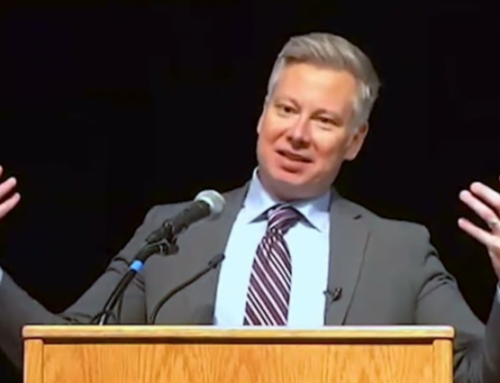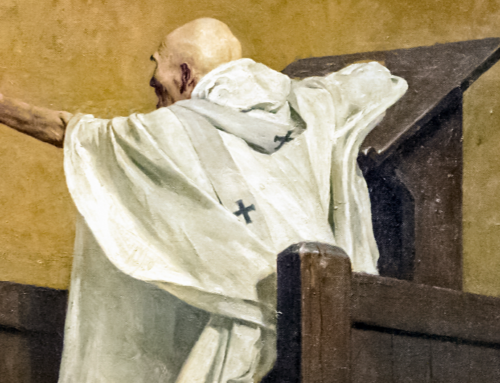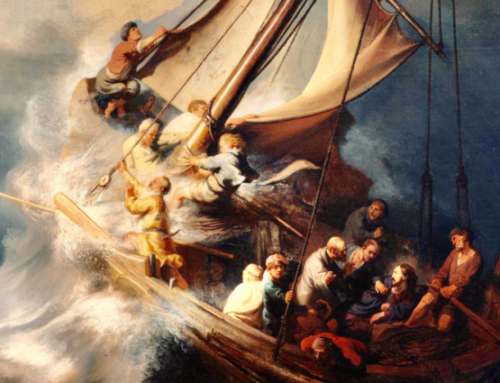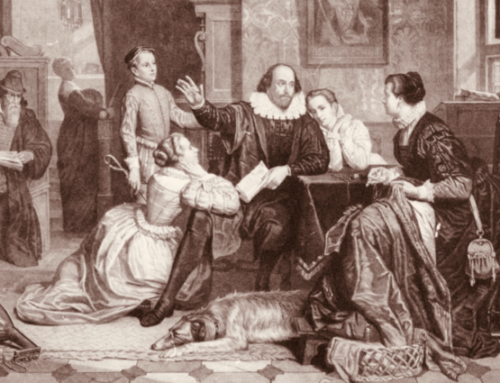We do have moral obligations and duties, and we should perform them conscientiously. But they serve a larger purpose; they are to build us up and make us fit for heaven—to make us happy.
Angelic Virtues and Demonic Vices: Aquinas’s Practical Principles for Reaching Heaven and Avoiding Hell, by Fr. Basil Cole, OP (275 pages, TAN Books, 2023)
 Religion is not primarily morality. Morality is not primarily rules. These are two of the conclusions to draw from a new book about virtue by Fr. Basil Cole, published by the Catholic press TAN Books. Fr. Cole’s book is essentially a simple and transparent exposition of Christian ethics. I’d wager, though, that many even among believers don’t realize to what extent Christian ethics represents a very particular approach to the question of right action, one that differs from ways of thinking dominant in the modern world. Philosophers term the classic Christian approach “virtue ethics” and often contrast it with two other possible viewpoints, known respectively as consequentialism and deontology. Put simply, consequentialism says that what counts is the results of my action, while deontology (from the Greek deon, binding or obligation) says that what counts is following the right moral rules.
Religion is not primarily morality. Morality is not primarily rules. These are two of the conclusions to draw from a new book about virtue by Fr. Basil Cole, published by the Catholic press TAN Books. Fr. Cole’s book is essentially a simple and transparent exposition of Christian ethics. I’d wager, though, that many even among believers don’t realize to what extent Christian ethics represents a very particular approach to the question of right action, one that differs from ways of thinking dominant in the modern world. Philosophers term the classic Christian approach “virtue ethics” and often contrast it with two other possible viewpoints, known respectively as consequentialism and deontology. Put simply, consequentialism says that what counts is the results of my action, while deontology (from the Greek deon, binding or obligation) says that what counts is following the right moral rules.
Christian teaching follows neither of these latter two approaches. It says instead that ethics is essentially about becoming the right sort of people—about intrinsic moral character. Thus, church doctrine has traditionally assigned the operative role in moral life to virtue or the virtues. This seems an obvious statement; yet many believers are probably unaware that in speaking of virtue, Christianity has grafted the insights of Grecian philosophy onto biblical faith. “Virtue” is not strictly speaking a biblical concept, although we can certainly see it adumbrated in the New Testament. The word is Latin in origin and akin to vir, the word for male human being; there was even a god named Virtus, a personification of courage and military strength.
Among ancient thinkers, Aristotle’s discussion of the virtues is both wise and timeless. Virtue for Aristotle and other classical philosophers (the term “pagan” is misleading and probably useless here) could mean any excellence or perfection, from athletic ability to the incorruptibility of a politician or the piety of the head of a family. Aristotle postulated that happiness is the desired goal of all living beings and is found by living a virtuous life. In the Christian scheme, happiness is attained in heaven, enjoyed in eternal blessed union with God. Both schemes pose that happiness is found through moral goodness, but Aristotle’s stress on personal excellence was a singular contribution to our Christian understanding of ethics. The doctrine of happiness and excellence is essential to Christianity because it frees us from a mechanistic system of rule-following and rewards, something that can easily happen if religion is conceived as denoting merely doing or refraining from doing certain things on a checklist. Instead, a virtue-centered view of ethics respects the individuality of human beings and the existential dimension of life. We are not simply machines for the production of results, but centers of dignity and truth and meaning. Virtue expresses something intrinsic to the way reality is structured.
Indeed, intrinsic to Aristotle’s conception was a theory of teleology, or purpose in nature. Aristotle identified happiness as the telos, or final end, of all things. We see things in nature fulfilling certain ends and purposes. That certain desires and aspirations are implanted in mankind is a sign that they are destined to be fulfilled. We thus infer a scheme of design in nature, setting aside for the moment the question of whether we posit a God behind all this or whether nature is somehow self-sustaining. Aristotle’s insistence that all human beings desire happiness was an invaluable point to make even if it may seem obvious. No one really doubts that all human beings desire happiness, nor, I would add, that they desire ultimately a heavenly state of being. Some people transfer heaven to this life, or to future generations; but all desire heaven in some form—even, I’d dare to say, those who think the best we can hope for is the peace of the grave. And attaining to heavenly beatitude, as Christian teaching insists, is dependent on our becoming certain kinds of people—on becoming bearers of the virtues. Virtues are like the soul’s vitamins, building up good habits. But we aren’t concerned solely with the this-worldly results of taking these spiritual vitamins. Virtue exists for a transcendent purpose, to raise us to God and heaven, thus reaching the fulfillment of our very nature.
With Christian teaching we get a fuller revelation of how virtue, ethics, and morality relate to the transcendent notions of God, the good, and heaven. As Fr. Cole recalls, “Aristotle himself wondered why humans did not achieve their ultimate end in this life rather than simply dying.” Christian teaching provides the answer. Death is not the final word; there is another life, and our state of being in that life will depend on our character, which is determined by our actions. Thus, for Christianity virtue and morality are not ends in themselves but relate to the higher goal of human beings: union with God in the state of final blessedness.
Yet as Western culture as a whole drifted further and further from the classical and Christian tradition of thought, this vision lost something of its luster. Some of the higher thinkers were no longer sure that a state of happiness awaited man after death. They doubted the existence of heaven, and thus it appeared as if perhaps “virtue is its own reward.” And thinking about virtue meanwhile became much less richly detailed; one tended now to speak of “virtue,” singular, instead of “the virtues,” plural. “Virtue” came to denote a good life in the generic sense. And the emphasis in ethics shifted from cultivating the right habits and qualities of soul to establishing the right moral rules, an activity that underpins the moral philosophy of Immanuel Kant in particular. Thinking about religion, no longer grounded the theory of happiness and human flourishing, concentrated instead on morality, understood as “what to do” and “what not to do.”
There developed a common way of thinking and speaking, familiar to us today, according to which religion is all about morality. Thus, religion for many people in the modern era means “being a good person,” and being a good person consists in following particular rules. We are familiar too with the rather miserable form of religiosity that consists chiefly in attempting to avoid hell—an approach that can devolve into the ethic of “what can I get away with” instead of an ethic of moral excellence. Fr. Cole refers to this approach at the beginning of his book: “many practicing Christians know more about what they are avoiding in this life (damnation) than what they will ultimately gain from their lifelong relationship with Christ.”
There is a problem, acknowledged by Fr. Cole, in the fact that the doctrine of heaven remains rather vague, and it is hard to strive toward something vague. But it can hardly be otherwise, since heaven is beyond our understanding or imagining. Popular thinking about heaven is filled with banal images, while the high theological concept of the Beatific Vision is not helpful to many people. This problem will never be overcome in this life, of course, because heaven transcends anything we know at present. We can liken it to the most intense happiness we have experienced in this life, but this too falls short. Ultimately it is a great mystery which one must approach with faith, the “substance of things unseen.”
In former times, the ethics of virtue gave priceless guidance to centuries of human beings in organizing their lives, seeking blessedness in the next life, and finding even proximate happiness and peace of soul in this life. For many it undoubtedly still does; yet in Western culture as a whole the idea of virtue has gone into eclipse. The story of what happened to virtue in the modern period of thought has been told by scholars such as Alasdair MacIntyre in his influential book After Virtue. As philosophers turned to a concept of ethics based on duty and obligation and the precise formulation of rules—the deontological approach—the theory of virtue became much less important. And Aristotle’s rooting of virtue in a teleological conception of the good and of happiness turns out to be central here, because the widespread rejection of Aristotle that marked modern thought turn in large part on a skeptical questioning of the whole idea of ultimate purpose in life and the universe.
There are those of us for whom purpose certainly exists in the universe and who can’t fathom why a whole segment of intellectual culture would reject it. But some historical context is helpful here. Aristotle’s influence on Western thought from the high Middle Ages onward was a great burden for some thinkers. The change in ethical perspective has been traced to the theologian William of Ockham, who came just about a generation after Thomas Aquinas, who embodied Aristotle’s ideas in a Christian context. Ockham rejected to a large degree the use of reason in the search for God, enshrining God’s will as the criterion of all things. Thus, God’s commands, rather than the concept of right reason, took on central importance. As Western thought evolved, thinkers began more and more to doubt the ability of reason to reach any understanding of telos at all, or even that any such overarching telos existed.
This loss of faith in reason led to the conclusion that divining any telos, final end, in nature and life was naïve and wishful thinking. Reason, it seemed, could not reach any understanding of final ends—that belonged to the realm of mystery, i.e., something not discoverable by us. Instead, reason could only divine processes and mechanisms—i.e., the way things work, whether the movements of the planets or the actions of man. The result of this shift in emphasis was that ethics itself became mechanistic and technical, a matter of finding the right technique for doing the right thing.
This is not unrelated, it seems to me, to the excessively technical nature of much of modern life—the neglect of purpose and meaning in favor of an endless preoccupation with means. Virtue has the quality of art or poetry; rules are more of an exact science, like mathematics, and perhaps therefore appeal more strongly to an age calling itself scientific. But an overriding concern with external rules can devolve into a dehumanizing utilitarianism. Make no mistake, the era in which the virtues were central to morality was not necessarily an era in which everyone was virtuous. But it was a world in which everyone lived and interacted with each other with a common understanding of the good and the nature of the human person. We have ended up with a world in which we are all essentially technicians trying to navigate a mechanistic environment while trying not to step on anyone else’s toes (or rights).
The shift from virtues to rules was very gradual. Alasdair MacIntyre in his research on ethics in history finds clear signs of a culture of virtue in the 18th and 19th centuries—for example, in funerary inscriptions, in which the virtues of the deceased loved one are enumerated and praised. What seems beyond question is that today virtue as such has no place in any public discourse in mainstream society. Even talking about someone having good qualities sounds a bit old-fashioned now. It has been said that the kind of virtues we tend to value now are “resume virtues”: things one can put down on paper to gain prestige or in general look good to one’s fellows.
There is need for a return to order in all these matters, and a good place to start is to establish the fundamental nature of religion. Christianity is not merely or even primarily the Golden Rule, and religion is not merely or even primarily about morality. Religion is primarily about certain metaphysical truths concerning God, human nature, the soul, and the final end for which things were made. Ethics, morality, and rules for human behavior flow naturally from these truths, but they are Second Things, not First Things. When we look at ethics as being about who God is and about our positive goal—union with God in heaven—we get the emphasis right. Without the First Things, ethics and morality would have no object; they would be practiced in a void.
Secondly, to achieve clarity in all these matters, we must overcome the naivete that says that final ends are naïve. We must overcome the superstition that man has no discoverable purpose.
There’s a bit more to this picture, for Christian tradition in fact has a two-pronged approach to morality. It absorbed the theory of virtues from the Greeks along with the more law-oriented ethic of the Jews. Law ethics were just right for the ancient Hebrews, providing a form of belonging and a sense of objective reason to morality that sustained them in their dealings among other peoples who did not share their belief in Yahweh. We see how God provides exactly what people need at a given time. But unless religious laws and observances and rules of moral conduct are fit into a broader context of the good, such a scheme remains thin and empty. Without the love of God at its core, religion is barren.
By defining ethics as a process of man becoming what he was meant to be and attaining the happiness that he was destined for, we take both God and man seriously. There is a common way of explaining man’s journey as being a process of gradually becoming what his choices and habits have made him to be, until after death he is fixed permanently in that state. But we become that way because of who we are, not merely because of what we have done. At bottom, life is not so much about doing as about being. At the proverbial pearly gates, we are interrogated about what sort of people we are, not purely and simply about what rules of conduct we have followed. It pays to accentuate eternity in your everyday living and to take yourself seriously as a being with a definite moral character.
Virtue ethics, I think, has this existential dimension that law-following lacks. It honors the innate dignity and individuality of the human being. Deontology can cause anxiety: am I following the right rule? Virtue ethics produces a measure of confidence, in that you are following the example of an existing human being (which in the highest sense would be Christ himself).
All things being considered, the two perspectives on ethics—virtue-based and rule-based—are complementary, not mutually exclusive. We do have moral obligations and duties, and we should perform them conscientiously. But they serve a larger purpose; they are to build us up and make us fit for heaven—to make us happy. Contrast the law-oriented Ten Commandments with the virtue-oriented Beatitudes: both are necessary and true. According to Fr. Cole, the virtues are “rooted in the whole question of happiness as mankind’s quest.” Christianity is thus revealed as humanism par excellence. To live a virtuous life is to live a happy and a good life—a life that is good in every sense. That is the message of the virtues and why they will never go away, no matter what intellectual fashions hold sway.
The Imaginative Conservative applies the principle of appreciation to the discussion of culture and politics—we approach dialogue with magnanimity rather than with mere civility. Will you help us remain a refreshing oasis in the increasingly contentious arena of modern discourse? Please consider donating now.







I enjoyed and appreciated this article TREMENDOUSLY. It articulated what I knew in my heart but didn’t know the reasoning. I read it from the perspective of a practicing Catholic and was not at all surprised to learn at the end that the author was himself a Catholic, or at least educated at a Catholic university.
Beautiful